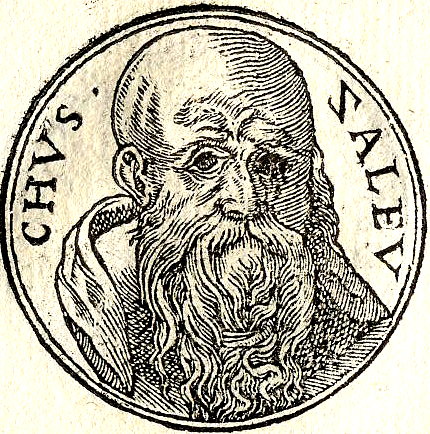Zaleucus on:
[Wikipedia]
[Google]
[Amazon]
 Zaleucus ( grc, Ζάλευκος; fl. 7th century BC) was the
Zaleucus ( grc, Ζάλευκος; fl. 7th century BC) was the
/ref> in Italy. According to the
 Zaleucus ( grc, Ζάλευκος; fl. 7th century BC) was the
Zaleucus ( grc, Ζάλευκος; fl. 7th century BC) was the Greek
Greek may refer to:
Greece
Anything of, from, or related to Greece, a country in Southern Europe:
*Greeks, an ethnic group.
*Greek language, a branch of the Indo-European language family.
**Proto-Greek language, the assumed last common ancestor ...
lawgiver of Epizephyrian Locri
Locri is a town and ''comune'' (municipality) in the province of Reggio Calabria, Calabria, southern Italy. Its name derives from that of the ancient Greek region of Locris. Today it is an important administrative and cultural centre on the Ion ...
,Suda Encyclopedia, § zeta.12/ref> in Italy. According to the
Suda
The ''Suda'' or ''Souda'' (; grc-x-medieval, Σοῦδα, Soûda; la, Suidae Lexicon) is a large 10th-century Byzantine encyclopedia of the ancient Mediterranean world, formerly attributed to an author called Soudas (Σούδας) or Souida ...
, he was previously a slave and a shepherd, and after having been educated he gave laws to his fellow-citizens. Some sources make him a Pythagorean philosopher, although older ones put him as older than Pythagoras or even deny his existence altogether. They also attribute divine origin to his laws.
Most probably, he devised the first written European law code, the Locrian code, in the 7th century BC. The code, however, is lost except for some later mentions and imitations which seem clearly anachronistic. These, which among other things mention that:
It also banned the drinking of undiluted wine
Wine is an alcoholic drink typically made from Fermentation in winemaking, fermented grapes. Yeast in winemaking, Yeast consumes the sugar in the grapes and converts it to ethanol and carbon dioxide, releasing heat in the process. Different ...
except for medical purposes.
Although the Locrian code distinctly favored the aristocracy, Zaleucus was famous for his conciliation of societal factions. No other facts of his life at all are certain. According to legends, he punished adultery
Adultery (from Latin ''adulterium'') is extramarital sex that is considered objectionable on social, religious, moral, or legal grounds. Although the sexual activities that constitute adultery vary, as well as the social, religious, and legal ...
with the forfeiture of sight. When his own son was condemned of this, he refused to exonerate him, instead submitting to the loss of one of his own eyes instead of exacting the full penalty of the culprit. Another law that he established forbade anyone from entering the Senate House armed. Faced with an emergency, he did so anyway, but when he was reminded of the law, he immediately fell upon his sword
A sword is an edged, bladed weapon intended for manual cutting or thrusting. Its blade, longer than a knife or dagger, is attached to a hilt and can be straight or curved. A thrusting sword tends to have a straighter blade with a pointed ti ...
as a sacrifice to the sovereignty of the claims of social order. A similar story is told of Charondas
Charondas ( grc-gre, Χαρώνδας) was a celebrated lawgiver of Catania in Sicily. It is uncertain when he lived; some identify him as a pupil of Pythagoras (c. 580 – 504 BC), but all that can be said is that he lived earlier tha ...
.
Anyone who proposed a new law, or the alteration of one already existing, had to appear before the Citizen's Council with a rope round his neck. If the Council voted against the proposal the proposer was immediately strangled.
Demosthenes Demosthenes (; el, Δημοσθένης, translit=Dēmosthénēs; ; 384 – 12 October 322 BC) was a Greek statesman and orator in ancient Athens. His orations constitute a significant expression of contemporary Athenian intellectual pr ...(in "Against Timocrates "Against Timocrates" was a speech given by Demosthenes in Athens in which he accused Timocrates of proposing an illegal decree. The speech provides our best evidence about the use of imprisonment as a punishment in Classical Athens. Timocrates' law ..."), who to persuade the Athenians not to change any law upon small and frivolous pretences, gives the example of these Locrians, ''with whom'', says he, ''it's a law, that a man who shall propose to make any new law shall do it with a rope about his neck, which he shall be strangled in, if he do not carry his point: which has been such a guard and defence to the laws, that there has been but one new one made in'' MORE THAN TWO HUNDRED YEARS. (Demost. in Timocr. p. 469.) Now. that Demosthenes here speaks of Zaleucus's laws is plain enough from his naming the Locrians; but it appears further from the law itself. For Hierocles and Polybius's author say expressly, ''that this law about the rope was'' Zaleucus's; ( Hieroc. apud Stobaeum, Serm. 37. Polyb. xii, p. 661.)
References
*Aristotle
Aristotle (; grc-gre, Ἀριστοτέλης ''Aristotélēs'', ; 384–322 BC) was a Greek philosopher and polymath during the Classical period in Ancient Greece. Taught by Plato, he was the founder of the Peripatetic school of ...
, ''Politics''
* Diodorus Siculus
Diodorus Siculus, or Diodorus of Sicily ( grc-gre, Διόδωρος ; 1st century BC), was an ancient Greek historian. He is known for writing the monumental universal history '' Bibliotheca historica'', in forty books, fifteen of which ...
* Charondas
Charondas ( grc-gre, Χαρώνδας) was a celebrated lawgiver of Catania in Sicily. It is uncertain when he lived; some identify him as a pupil of Pythagoras (c. 580 – 504 BC), but all that can be said is that he lived earlier tha ...
External links
* {{Authority control Ancient Greek law 7th-century BC Greek people Epizephyrian Locrians Pythagoreans of Magna Graecia Ancient legislators